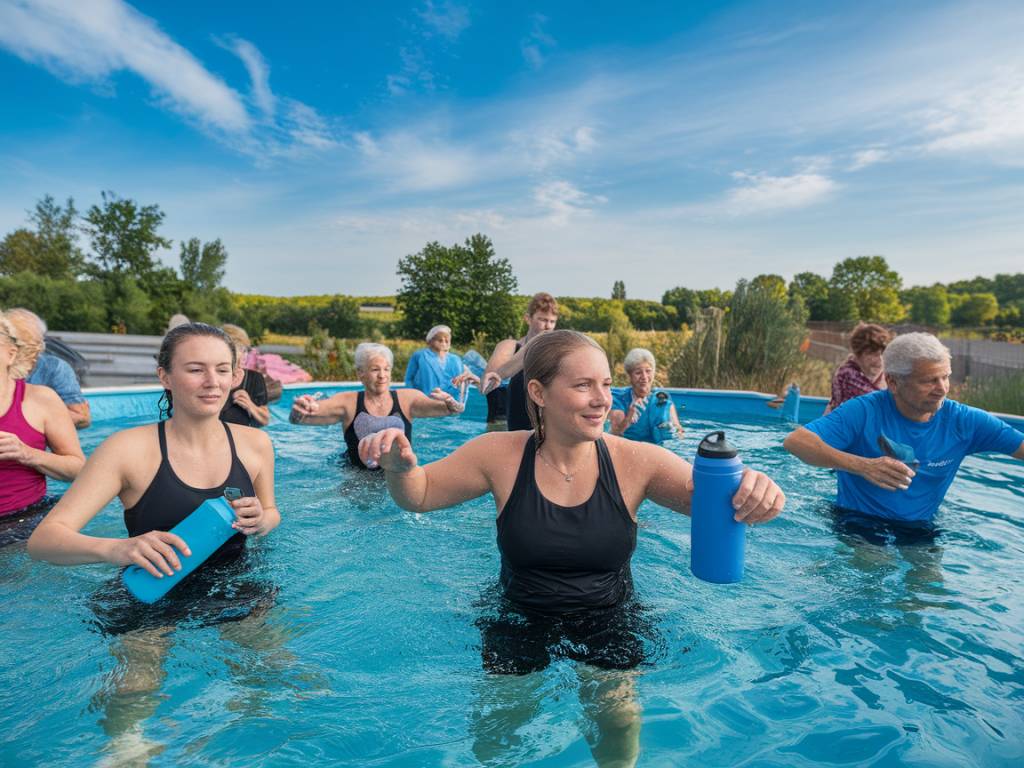The quest for a healthier workforce often leads us down various paths—from implementing ergonomic office designs to offering mental health support. But could the future of workplace health hinge on an element as simple as water? As surprising as it may seem, emerging water technologies hold transformative potential for occupational health and well-being. Let us dive into this refreshing topic, exploring whether these innovations could be the key to nurturing healthier, happier employees.
The Essence of Hydration: More Than Just Quenching Thirst
Before delving into the latest water technologies, it is essential to understand the fundamental role of water in our health. Hydration influences everything from our cognitive function to our energy levels. Imagine trying to focus on a complex task while parched, akin to asking a plant to thrive without adequate watering. Not an ideal scenario, is it?
Many employees unknowingly suffer from chronic dehydration, affecting their productivity and well-being. This is where the innovative solutions come into play, aiming not only to provide water but to enhance its quality and accessibility in the workplace.
Smart Water Dispensers: The Futurist’s Fountain
Incorporating smart water dispensers in offices is an emerging trend, promising not just convenience but a new level of health benefits. These devices monitor individual water consumption, nudging employees when it’s time to take a sip. Could a simple nudge be enough to cultivate better hydration habits?
Beyond reminders, some smart dispensers are equipped with filtration systems that purify water to an almost pristine state. Imagine working with the confidence that each sip you take is clean, crisp, and free from contaminants that lurk in regular tap water. Such advancements could significantly impact workplace health, minimizing waterborne illnesses and boosting overall morale.
Electrolyte-infused Water: The New Energy Boost
Diet and hydration often intertwine, and some offices are now introducing electrolyte-infused water options. Why? Because electrolytes are crucial for maintaining hydration levels, especially in high-energy or stressful work environments.
By providing electrolyte-rich water in the workplace, employees may experience better hydration retention, faster recovery from physical tasks, and even improved focus and alertness. It’s like swapping out those sugary office snacks for a healthier, liquid alternative that genuinely refreshes and replenishes.
The Rise of Water-Conscious Corporate Policies
With sustainability and health becoming interconnected priorities, companies are also shifting their focus towards water-conscious policies. No longer is it just about how much water we consume but also how we use and conserve it. Such policies can include everything from installing water-efficient appliances to ensuring that the water provided is not only safe but sourced responsibly.
Could these corporate policies inspire a broader shift towards water conservation beyond the workplace? Instilling these values in employees might ripple outwards, encouraging more sustainable practices at home and community levels. After all, habits learned at work often carry into personal lifestyles.
An Interview with Innovation: The Perspective of a Water Technology Expert
To further understand the potential of these technologies, I spoke with Dr. Emily Waters, a leading expert in water sustainability and innovation. Dr. Waters noted that « advancements in water technology are not just about providing clean water, but also about fostering a holistic approach to health and well-being. »
When asked about the future of water technology in corporate settings, Dr. Waters shared, « The integration of AI and IoT in water dispensers is just the beginning. Imagine a future where your hydration needs are automatically adjusted based on your environment and personal health data. »
Indeed, the possibilities are both exciting and motivating. Such technologies could revolutionize the way companies approach employee health, focusing on personalization and precision in hydration.
Culturally Inclusive Water Choices: Catering to Diverse Needs
Workplaces today are wonderfully diverse, and a one-size-fits-all approach to water consumption may not meet the needs of all employees. Innovations now offer culturally inclusive options like hot water dispensers for tea drinkers or carbonated water for those who prefer it.
By catering to such preferences, companies can ensure all employees feel seen and valued, contributing positively to workplace culture and inclusivity. Plus, offering a variety of water options might just spark new office conversations, bringing colleagues together over a shared appreciation for different hydration tastes.
Implementing Water Innovations: Practical Steps for Employers
The allure of new technology is undeniable, but how can companies pragmatically integrate these water advancements into their health strategies?
- Assess Needs: Start by conducting a survey to understand employees’ current hydration habits and preferences.
- Test and Implement: Consider piloting new technologies with a small group before a full rollout to iron out any potential issues.
- Educate and Engage: Host workshops or seminars conducted by experts to educate employees on the benefits and proper use of these innovations.
- Feedback Loop: Implement a system for ongoing feedback, allowing employees to voice their experiences and suggestions for improvement.
Through these steps, employers can create an environment where water technologies not only refresh but enrich the workplace, cultivating a culture of well-being and innovation.
In conclusion, while water might seem like an unassuming player in the quest for healthier workplaces, its potential, fueled by modern technological advancements, is profound. By investing in these innovations, companies can enhance their health strategies, nurturing both their employees and their values toward a more sustainable future.






More Stories
Corporate wellness programs: how to integrate health monitoring devices?
What corporate health technologies can boost employee well-being?
Workplace health: what are the benefits of using recycled water?